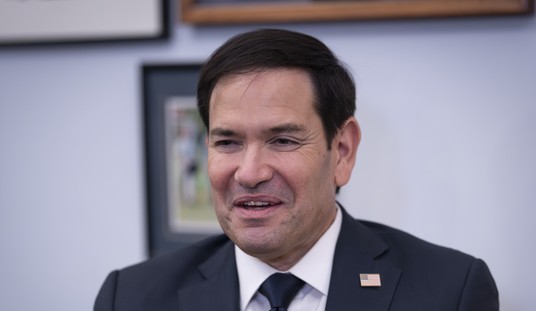I served quite a while in the Army as an infantry officer. Generally I look back on my career with deep feelings of affection for the institution that rescued me from life chopping tobacco or working in a furniture mill, but I will concede that the Army is prone to institutional stupidity. When I commanded a rifle company the Army was all hot on its urinalysis program to catch drug users. The net effect was that it encouraged the use of cocaine (only in the urine for a couple of days) and LSD (not detectable in the urine) instead of marijuana usage (detectable for as much as a month).
Now my Army has outdone itself.
Traditional values groups are rallying around an Army chaplain who was rebuked by his commander for distributing information on Christianity during mandatory suicide prevention training.
Twenty nonprofit organizations dedicated to religious freedom have signed a letter to Army Secretary John McHugh, urging him to overturn action against Capt. Joseph Lawhorn, an evangelical and onetime infantryman.
His commander, Col. David Fivecoat, who heads the brigade at Fort Benning, Georgia, that molds new Rangers, issued a “letter of concern” on Thanksgiving. He took action after one soldier complained to the website MilitaryAtheists.org, which posted an article.
The atheist group later said it “appreciates and commends” Col. Fivecoat.
Capt. Lawhorn had spoken and distributed one page of religious material to soldiers Nov. 20 on how his faith helped him overcome bouts of depression. Suicide in the ranks has been a major Army problem amid deployments to long wars in Iraq and Afghanistan.
What Chaplain Lawhorn was not proselytize. He distributed a one page flyer to soldiers attending a mandatory suicide prevention class that on one side listed Army resources available, on the other was his personal testimony of his struggle with depression and how religion aided him.
Lawhorn says his role in the military is to bring a sense of “encouragement and hope” to soldiers from a religious or spiritual perspective. So when he received an official complaint for doing just that, Lawhorn was surprised.
“When I spoke about faith in particular, and in particular my Christian faith, it was clear that I was speaking from [a] first-person account,” he says, adding:
In my particular situation, it was my faith that helped me to persevere and remain resilient in the face of depression. And I was very clear to my audience that that was one way to handle depression and thoughts of suicide, but it certainly was not the only way.
As for the handout given at the mandatory briefing, Lawhorn says it was “completely optional.”
“I made it clear from the beginning of the class that … any handout or any resource I provided soldiers who might need help was completely optional,” he says. “It was up to them whether to take it or leave it.”
To ask a chaplain to give a class and not mention chaplain-y type stuff seems, at least to the casual observer, to be rather counterintuitive. To punish a chaplain for speaking about faith, especially in a first person context, has to be one of the more boneheaded things any Army officer has ever done… and take my word for it, I’ve seen professionals in boneheadedness in action.
More to the point, what possible secular case can you make against suicide? The logical problem comes in when you view your life as your personal possession to do with what you wish (this is the root argument for homosexuality, drug use, and most any other social pathology you wish to point to) and not as something held by you in sacred trust from the Author of Life.
We have physician assisted suicide in some states. It is all the rage in Europe. I can understand the Army wanting to prevent suicide (you have to recruit and train someone to fill the open slot, the dead person may have critical skills, there may be financial costs associated with responding to the incident, and, of course, paperwork) but what I don’t understand is what the logical case is for devoting resources to suicide prevention in excess of the costs associated with suicide itself if faith cannot be invoked. If faith has no part in preventing suicide then one wonders why a pharmacist was handing out scrip for lethal doses of drugs at the end of the class.
What makes this incident particularly egregious is that it seems that Colonel Fivecoat’s objection to religious invocations is both selective and newfound. This image from his service in Afghanistan seems to indicate that he didn’t object to the Koran being used in an official event… though telling Muslims to not do something associated with their religion tends to put them off their feed and God knows what happens then:
As a culture we may not have hit rock bottom but when chaplains are disciplined for invoking their personal faith story in the cause of preventing suicide we are within spitting distance.















Join the conversation as a VIP Member